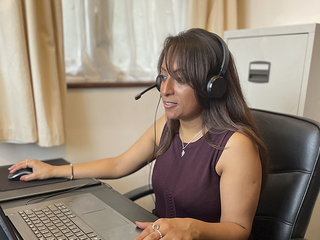What causes blood cancer?
All types of blood cancer are caused by faults in our DNA (mutations). In practically all cases these changes to our DNA happen for reasons we can’t explain and are linked to things we can’t control.
Risk factors
While in most cases we don’t know exactly what causes the changes to DNA that can lead to blood cancer, research has shown that there are a number of things that can affect how likely you are to develop certain types of blood cancer.
These ‘risk factors’ include:
- age
- sex
- ethnicity
- family history
- radiation or chemical exposure
- some health conditions and treatments.
The risk factors vary between the different types of blood cancer. For example, we know that myeloma only affects adults and is much more common in men and people from an African-Caribbean background, whereas Hodgkin lymphoma usually develops in people aged 15-25 or over 50, and people who already have problems with their immune system.
How does age affect my risk?
Generally as we age we’re more likely to pick up mutations or faults in our DNA that can lead to blood cancer, meaning many types of blood cancer are more common in older people.
How does family history affect my risk?
While blood cancer is caused by problems in our DNA, in most cases this doesn’t mean blood cancer happens because the genes get passed down from parents to children (hereditary). Although there’s some evidence for some types of blood cancer that having a family member with blood cancer slightly increases your risk, it’s not clear if this is because of a genetic (gene) fault passed down by parents, or for some other reason.
Does radiation cause blood cancer?
There’s some evidence that environmental factors such as radiation or chemical exposure may be linked to some types of blood cancer, but these would need to be at a much higher level than you'd experience in everyday life in the UK.
Is there anything I can do to prevent or lower my risk of blood cancer?
Unlike some other cancers, lifestyle factors such as your diet or levels of exercise have little effect on your risk of developing blood cancer. Nevertheless we encourage people to lead a healthy lifestyle, including eating a balanced diet and being physically active regularly. This can help reduce the risk of developing a range of diseases.

Worried about anything or have questions?
If you need someone to talk to, please don't hesitate to contact our Support Service by phone or email.
